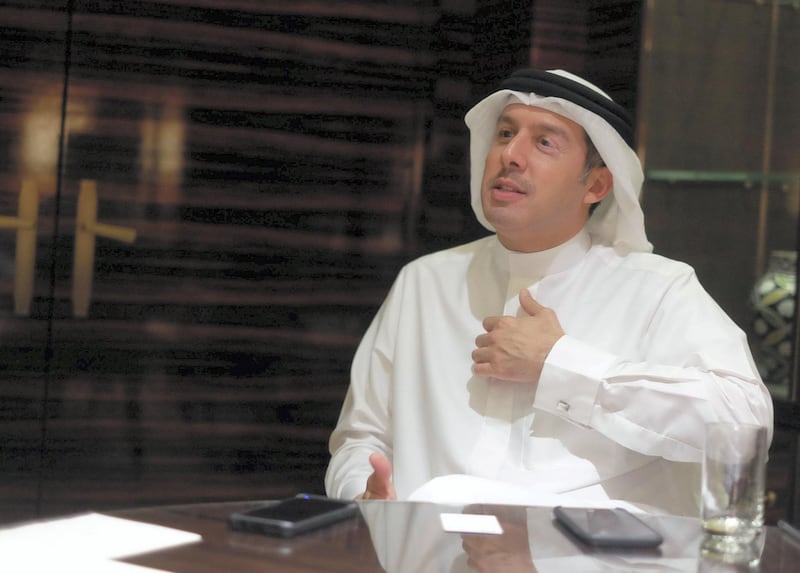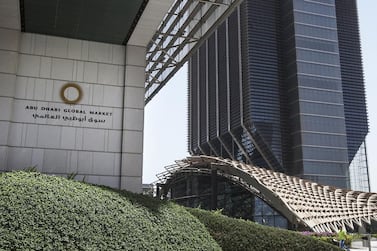Bahrain is tapping the UK, China and India for more foreign direct investment in 2019, with three deals expected to be signed in the coming months, as the smallest Arabian Gulf state looks to non-oil sectors to drive economic growth.
The government’s investment agency, Bahrain Economic Development Board, is in talks with two Chinese technology companies to set up in the kingdom, which would be their first locations in the Middle East. Both deals would represent investments of “tens of millions of [US] dollars”, said the agency’s chief executive Khalid Al Rumaihi.
The deals are expected to conclude this year. "China is a big source of FDI and we are seeing concrete deals emerging from our trips [the most recent of which was last November]," Mr Al Rumaihi told The National at Euromoney's GCC Financial Forum in Bahrain.
The EDB is also in talks with an Indian company that wants to set up operations in Bahrain. The agency, which already has promotional offices in Delhi and Mumbai – among other global offices – wants to establish an office in a third Indian city in the year ahead.
“We are focusing on India more and more, looking more closely at how we can nurture Indian businesses and consumers here in Bahrain," Mr Al Rumaihi said. "We have geographic proximity, and tourism and technology industries are particular opportunities.”
Chinese technology giant Huawei, as well as retailer Chinamex that owns Dragon Mall, State Bank of India, ICICI, Ajmera and Mayfair Global Realty, are examples of Chinese and Indian companies already operating in Bahrain.
Bahrain’s GCC neighbours, especially the UAE and Saudi Arabia, are another “wonderful source of FDI”, the chief executive said, as is the UK, which is nearing its deadline for exit from the European Union.
“I feel the UK could imminently be free of Europe, and will be able to strike its own trade deals and they will do it with the GCC,” Mr Rumaihi said. “We think it will be a major source of FDI as the UK, and British companies, spread their wings.” FinTech, precision engineering, light manufacturing, technology and other services are particular opportunities, he said, "and Bahrain is talking with prospective UK partners over potential deals".
Two laws are set to be introduced that would support an increase in FDI, including a data jurisdiction law enabling companies that store digital data in Bahrain to have their data and any related disputes governed by their own country’s legal framework. Amazon Web Services in 2017 announced a deal to open a massive data centre in Bahrain, and the project is expected to commence later this year, according to Mr Al Rumaihi. The other law seeks to create a register of movable assets, to support bank lending to small and medium-sized enterprises in Bahrain.
In the first nine months of 2018, Bahrain EDB reported record FDI inflows to Bahrain for the second year running, increasing by 138 per cent year-on-year to $810 million.
Bahrain’s real gross domestic growth reached 3.8 per cent in 2017, but is forecast to have slowed to around 2 per cent in 2018 on the back of challenging economic conditions for the region and maintenance work on a major Bahraini oilfield which halved production in the first half of the year. This caused GDP growth to lag to 1.1 per cent in the third quarter, Mr Al Rumaihi said. The latest figures are due to be released in the coming weeks.
The chief executive forecasts “marginal” gross domestic product growth of 2 to 2.5 per cent this year, driven by the manufacturing and construction industries. State-backed aluminium company Alba’s Line 6 expansion project will come online this year, making Alba the world’s largest aluminium smelter.
However, the part-introduction of VAT in Bahrain in January – making it the third GCC state to introduce the tax – is an “unknown variable” that has caused the government to be conservative in its forecasts while it evaluates the impact on inflation and consumer spending, Mr Al Rumaihi said.
Bahrain has the most debt of any Gulf state and a non-investment grade rating by S&P Global Ratings. The kingdom had a budget deficit of about $3.5bn in 2017 and a debt-to-gross domestic ratio of 85 per cent. The 2018 figures have yet to be released.
This week, Bahrain’s cabinet approved a reduction in the budget deficit to 708 million dinars (Dh6.9bn) in 2019 and a rise in state revenues.







